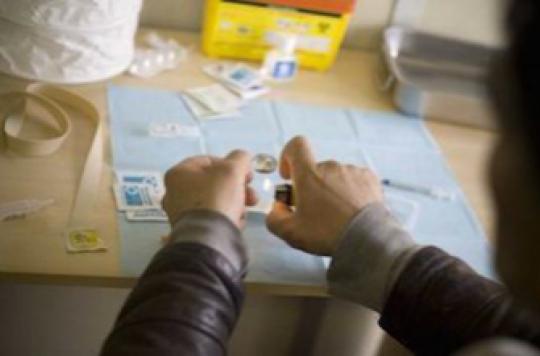The city of Bordeaux wants to experiment with “shooting rooms” for drug users. The legal framework for these places of consumption will be set by the future health law.

Alain Juppé confirms that Bordeaux will host one of the future lower risk consumption rooms (SCMR) also called “shooting rooms”. A decision hailed by the Addiction Federation. This device could also be deployed in voluntary cities, such as Paris and Marseille. The launch of this experiment at the national level depends today on the health law presented very soon to the National Assembly.
It was on the occasion of “the renewal of an agreement for the maintenance of two exchangers and syringe recovery devices that the Bordeaux city council confirmed its desire to experiment with a lower risk drug consumption room”, we learn. the Rue89 information site.
Bordeaux is historically one of the first voluntary cities, along with Paris, to engage in this experiment, which is supposed to last 6 years. Alain Juppé’s decision is however far from unanimous since the Front National municipal councilor Catherine Bouilhet is already denouncing the project.
Heated debate
The debate around drug consumption rooms has agitated the country for more than two years now. The room planned in the capital near the Gare du Nord was at the heart of the expectations of associations and was to be the first to open in 2014. But banned by the Council of State in 2013 which required the adoption of a law, the room is still awaited by its defenders.
In its press release, the Addiction Federation recalls that shooting rooms have been installed in Switzerland for 20 years now and that there are more than 90 in the world. Based on Swiss data, the association underlines the effectiveness of these places for precarious and fragile drug addicts: “Overdose deaths were halved between 1991 and 2009. And over this same period, we observed a decline. 80% of AIDS mortality among drug addicts. “
Reduce the risks
In these spaces, drug users with social vulnerabilities will be welcomed by health professionals and the medico-social sector. They will not be provided with any product or help with the injection. The multidisciplinary team will be there to support and advise users in order to reduce the risk of disease transmission. These rooms must ensure safe drug consumption – sterilized syringes, for example – and reduce disturbances to public order.
If the health law is passed, safer drug use rooms could open in 2016.
.











-1654441975.jpg)





